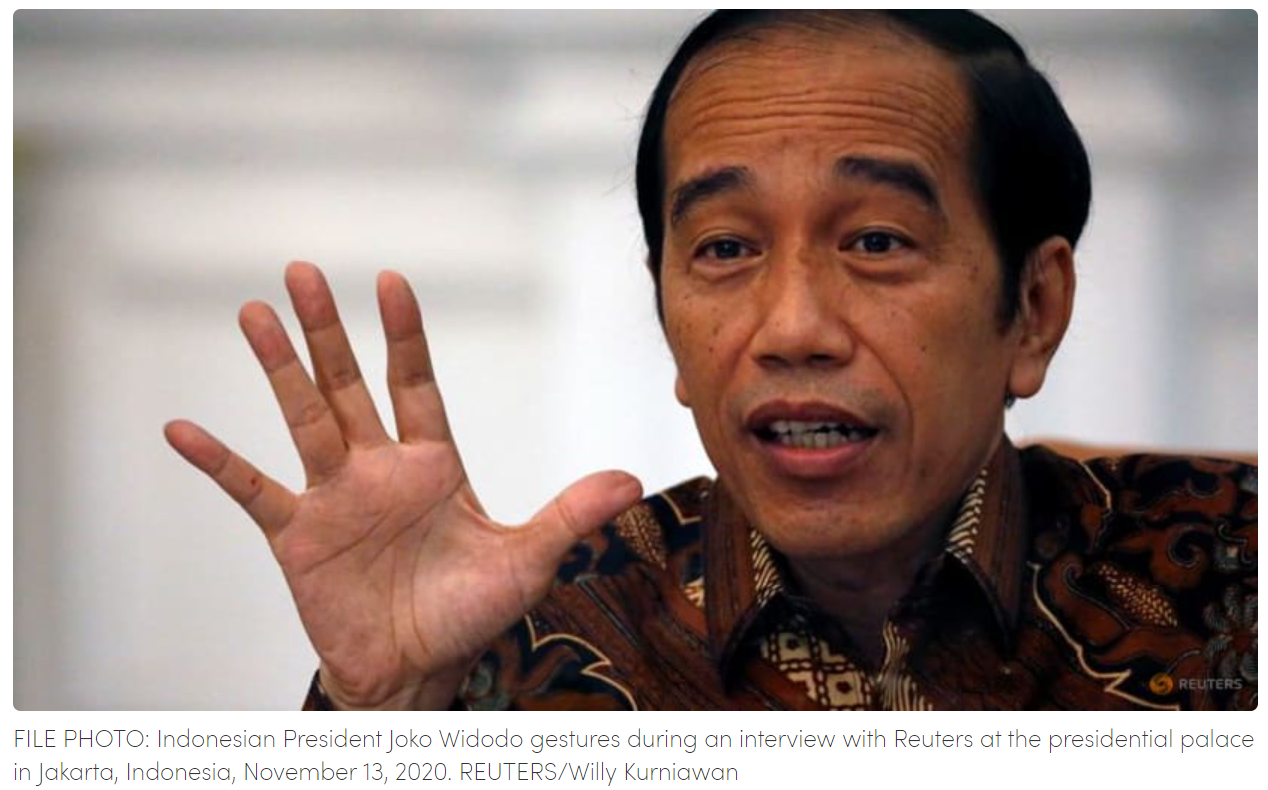Indonesia proposes US$188 billion 2022 budget with shrinking fiscal deficit
JAKARTA : Indonesia’s president on Monday proposed a US$188 billion budget for 2022 with a narrowing fiscal deficit and higher growth targets, but some analysts warn uncertainties over the COVID-19 pandemic could push the budget plans off the rails.
In his budget speech, President Joko Widodo told parliament the theme of next year’s budget would be to accelerate the economic recovery from the pandemic and strengthen structural reforms, with controlling COVID-19 still a main focus.
The 2022 budget proposal, amounting to 2,708.7 trillion rupiah (US$188.30 billion), was slightly bigger than the 2,697.2 trillion rupiah spending predicted for this year.
The 2022 economic growth target was set in a range of 5per cent to 5.5per cent, up from 2021’s 3.7per cent to 4.5per cent estimate. The economy shrank by 2.1per cent last year, the first contraction since 1998.
“We will utilise all resources…to control the pandemic,” Jokowi, as the president is popularly known, said.
The budget proposal called for a deficit target of 4.85per cent of GDP, compared with this year’s revised deficit forecast of 5.82per cent. Jokowi said the government was on track to bring the deficit down to under 3per cent in 2023 https://www.reuters.com/article/indonesia-economy-idINL4N2PD205 to comply with current laws.
Josua Pardede, an economist with Bank Permata, said there was downside risk to the growth target if there was another wave of COVID-19 cases amid low vaccination rates.
“We project that the fiscal deficit will not be able to return to under 3per cent in 2023 because interest payments for debt will remain high and this cannot be offset significantly yet by tax revenues,” he added.
Rating agencies have warned any loosening of Indonesia’s hard-won fiscal discipline could bode ill for its credit ratings.
Bhima Yudhistira, a director at the Center of Economic and Law Studies, said the budget assumptions were “inconsistent and unrealistic”, with a rupiah at 14,350 per dollar and 10-year bond yield at 6.82per cent, near current levels, even as the U.S. Federal Reserve looks set to taper asset purchases. A tightening of U.S. monetary policy will likely trigger outflows from emerging markets.
Southeast Asia’s largest economy pulled out of recession https://www.reuters.com/world/asia-pacific/indonesia-exits-recession-with-7-gdp-growth-q2-virus-clouds-recovery-2021-08-05 in the second quarter, but COVID-19 mobility restrictions imposed since early July will undermine momentum.
For next year, Jokowi proposed 255.3 trillion rupiah in health spending, including on testing, tracing and treatment of COVID-19 and vaccinations, as well as 427.5 trillion rupiah for welfare and 384.8 trillion rupiah for infrastructure.
Jokowi targeted a 6per cent increase in revenues next year, though he did not mention any specific tax measures, despite an ongoing debate in parliament on proposals to raise some taxes.
To fund the 2022 deficit, the government has proposed 991.3 trillion rupiah of bond issuance, excluding for refinancing, buybacks and short-term treasury notes.
Parliament is expected to vote on the budget in late September or early October.
(US$1 = 14,385.0000 rupiah)
(Additional reporting by Fransiska Nangoy and Stanley Widianto; Editing by Lincoln Feast and Ed Davies)


 Thailand
Thailand




